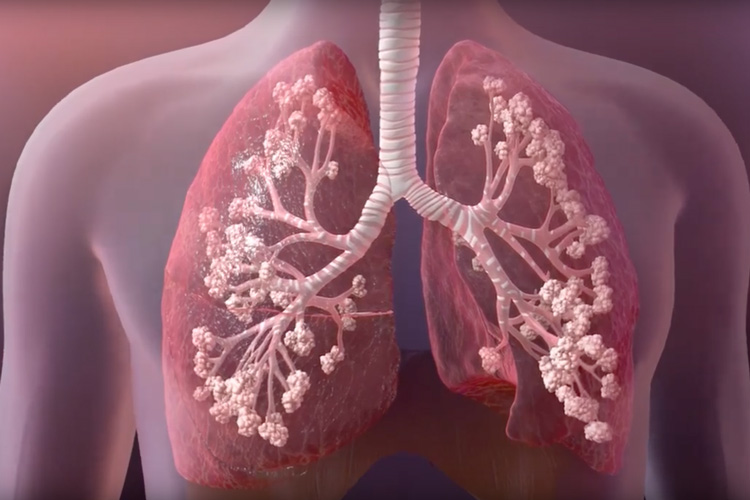Cystic fibrosis is a genetic disorder that occurs from birth and causes your lungs and the digestive system to produce too much sticky mucus. It can cause clogging of the airways and other systems in the body.
Cystic fibrosis affects the cells that produce sweat and digestive juices. Under normal conditions, your body fluids are thin and slippery. But in cystic fibrosis, they are too thick and sticky. Therefore it does not serve the purpose of being a lubricant. Instead, it clogs the tubes. It happens most commonly with the tubes of the digestive tract and lungs.
Cystic fibrosis is a progressive disease. Therefore the person needs daily care. However, they can go to school or attend work. But some days, they may need to take a break as the symptoms may be too severe.
In previous decades people with cystic fibrosis suffered more than present-day’s people. It is because now more supportive treatment is available. So they can live a better life with more expectancy. If your child has cystic fibrosis, you should visit the healthcare provider frequently. Make sure you attend all follow-up visits. For an expert opinion, you can visit a Pulmonologist in Lahore.
What are the Symptoms of Cystic Fibrosis?
The symptoms of cystic fibrosis vary from person to person, depending on its severity. Even in the same person, these symptoms may exacerbate and settle down, thereby having a variation in them. Some days you might feel close to normal. But sometimes, you may feel worse. However, the common symptoms of cystic fibrosis can be described as follows:
Cystic fibrosis causes clogging of airways, which can, in turn, cause the following symptoms:
- Wheezing- a whistling sound when you breathe
- Exercise intolerance
- Cough with too much and sticky sputum
- Inflamed nasal passage
- Recurrent lung infections
- A repeated episode of sinusitis
In cystic fibrosis, the ducts carrying digestive enzymes also get blocked. Since these digestive enzymes help in the digestion of food, without them, your body can not absorb food and its nutrients properly. Therefore the following symptoms of the digestive system occur:
- Greasy stools with a foul odor
- Poor weight gain
- Slow growth in children
- Blockage of the intestine, most commonly in infants
- Severe and chronic constipation can even lead to rectal prolapse- a condition in which a part of the rectum protrudes outside the anus because of long-term straining.
What are the Causes of Cystic Fibrosis?
Cystic fibrosis is a congenital disease that is caused due to a defective gene- called the cystic fibrosis transmembrane conductance regulator (CFTR) gene. It causes changes in the protein that regulates the movement of salt in and out. As a result, you have thick mucus that clogs the respiratory tract, digestive system, and reproductive system. Moreover, it also causes an increased amount of salt in sweat.

The type of gene mutation determines the severity of the disease. To have cystic fibrosis, a child needs to have defective genes from both parents. If one of them passes on the defective gene, the child may not develop cystic fibrosis. However, in this case, they can become carriers- means pass on to their children.
What is the Risk Factor for Cystic Fibrosis?
Cystic fibrosis runs in families. Therefore having its family history is the biggest risk to have it.
What are the Complications of Cystic Fibrosis?
The respiratory tract complications of cystic fibrosis can be:
- Bronchiectasis
- Recurrent respiratory tract infections
- Growth in the nasal polyps
- Coughing up blood
- Pneumothorax
- Respiratory failure
- Difficulty breathing
Complications of the digestive tract are:
- Diabetes
- Nutritional deficiencies
- Fatty liver disease and cirrhosis
- Gallstones
- Intestinal obstruction
Other complications of cystic fibrosis are:
- Infertility in men and reduced fertility in women
- Dehydration
- Electrolyte imbalance
- Osteoporosis- thinning of bones
If you have cystic fibrosis, you can visit a Pulmonologist in Islamabad.

